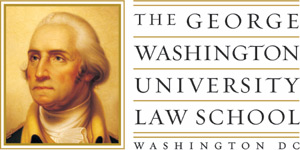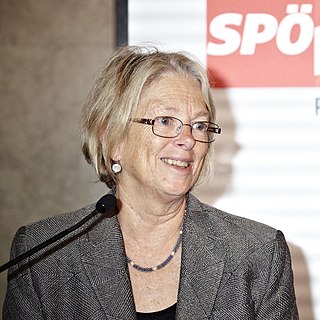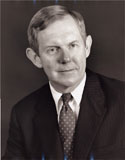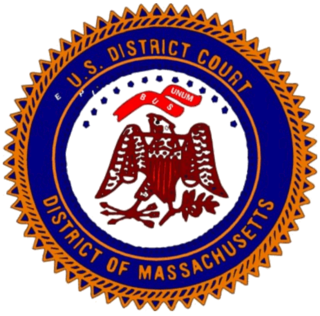
Intellectual property (IP) is a category of property that includes intangible creations of the human intellect. There are many types of intellectual property, and some countries recognize more than others. The best-known types are patents, copyrights, trademarks, and trade secrets. The modern concept of intellectual property developed in England in the 17th and 18th centuries. The term "intellectual property" began to be used in the 19th century, though it was not until the late 20th century that intellectual property became commonplace in most of the world's legal systems.
Intellectual property rights (IPRs) have been acknowledged and protected in China since 1980. China has acceded to the major international conventions on protection of rights to intellectual property. Domestically, protection of intellectual property law has also been established by government legislation, administrative regulations, and decrees in the areas of trademark, copyright, and patent.

The George Washington University Law School is the law school of George Washington University, in Washington, D.C. Established in 1865, GW Law is the oldest law school in the national capital. GW Law has 275 elective courses in business and finance law, environmental law, government procurement law, intellectual property law, international comparative law, litigation and dispute resolution, and national security and U.S. foreign relations law.
The threshold of originality is a concept in copyright law that is used to assess whether a particular work can be copyrighted. It is used to distinguish works that are sufficiently original to warrant copyright protection from those that are not. In this context, "originality" refers to "coming from someone as the originator/author", rather than "never having occurred or existed before".

Pamela Samuelson is an American legal scholar, activist, and philanthropist. She is the Richard M. Sherman '74 Distinguished Professor of Law at the University of California, Berkeley, School of Law, where she has been a member of the faculty since 1996. She holds a joint appointment at the UC Berkeley School of Information. She is a co-founder of Authors Alliance and a co-director of the Berkeley Center for Law and Technology.
KSR Int'l Co. v. Teleflex Inc., 550 U.S. 398 (2007), is a decision by the Supreme Court of the United States concerning the issue of obviousness as applied to patent claims.

William "Terry" W. Fisher III is the WilmerHale Professor of Intellectual Property Law at Harvard Law School and faculty director of the Berkman Klein Center for Internet & Society. His primary research and teaching areas are intellectual property law and legal history.

Lance Liebman is an American law professor. He is the former Dean of Columbia Law School, and served as the Director of the American Law Institute from May 1999 to May 2014.

The Berne Convention for the Protection of Literary and Artistic Works, usually known as the Berne Convention, was an international assembly held in 1886 in the Swiss city of Berne by ten European countries with the goal of agreeing on a set of legal principles for the protection of original work. They drafted and adopted a multi-party contract containing agreements for a uniform, border-crossing system that became known under the same name. Its rules have been updated many times since then. The treaty provides authors, musicians, poets, painters, and other creators with the means to control how their works are used, by whom, and on what terms. In some jurisdictions these type of rights are referred to as copyright; on the European continent they are generally referred to as authors' rights or makerright.
The Copyright Clause describes an enumerated power listed in the United States Constitution.

Limitations and exceptions to copyright are provisions, in local copyright law or the Berne Convention, which allow for copyrighted works to be used without a license from the copyright owner.
Mary Wong is the vice president for strategic community operations, planning & engagement at ICANN. Prior to taking up a full-time position with ICANN, she was the founding director of the Franklin Pierce Center for Intellectual Property and a tenured professor at the University of New Hampshire in Concord, New Hampshire, U.S.A.
Richard Harvey Stern is an American attorney and law professor.
John R. "Jay" Thomas is a professor of law at Georgetown University Law Center.

Ralph Oman is an American lawyer and former Register of Copyrights. He is currently the Pravel, Hewitt, Kimball and Kreiger Professorial Lecturer in Intellectual Property and Patent Law at The George Washington University Law School.
Kirtsaeng v. John Wiley & Sons, Inc., 568 U.S. 519 (2013), is a United States Supreme Court copyright decision in which the Court held, 6–3, that the first-sale doctrine exhausts copyright of the works lawfully made or purchased abroad.

Folsom v. Marsh, 9. F.Cas. 342, is a 19th-century US copyright case, widely regarded as the first "fair use" case in the United States. The opinion was written by Judge Joseph Story, who set forth four factors that are in use today, and were ultimately codified in the Copyright Act of 1976 as 17 U.S.C. § 107.

The Copyright Remedy Clarification Act (CRCA) is a United States copyright law that attempted to abrogate sovereign immunity of states for copyright infringement. The CRCA amended 17 USC 511(a):
In general. Any State, any instrumentality of a State, and any officer or employee of a State or instrumentality of a State acting in his or her official capacity, shall not be immune, under the Eleventh Amendment of the Constitution of the United States or under any other doctrine of sovereign immunity, from suit in Federal Court by any person, including any governmental or nongovernmental entity, for a violation of any of the exclusive rights of a copyright owner provided by sections 106 through 122, for importing copies of phonorecords in violation of section 602, or for any other violation under this title.
C. Scott Hemphill is a legal academic whose scholarship focuses on intellectual property law and antitrust law. He is currently a Professor of Law at New York University Law School, where he has taught since 2015. Previously, Hemphill was a Professor of Law at Columbia Law School.
Star Athletica, LLC v. Varsity Brands, Inc., 580 U.S. ___ (2017), was a U.S. Supreme Court case in which the court decided under what circumstances aesthetic elements of "useful articles" can be restricted by copyright law. The Court created a two-prong "separability" test, granting copyrightability based on separate identification and independent existence; the aesthetic elements must be identifiable as art if mentally separated from the article's practical use, and must qualify as copyrightable pictorial, graphic, or sculptural works if expressed in any medium.









